Ever heard of the term “t’wired?” This refers to that state wherein one feels simultaneously tired and wired. In other words, the body desperately wants to sleep but the mind wants to stay awake.
I usually sleep very well. But occasionally I find myself tossing and turning because my head won’t stop spinning.
For this article, I wanted to explore the causes of this sleeplessness and highlight the remedies that are available if you find yourself in that situation.
If terms such as sleep hygiene and circadian rhythm are new to you, I recommend you also read this article that goes into more detail about how to improve your sleep.
Sleep isn’t the only factor that influences our health and wellbeing. Learn more about all five factors you need to pay attention to.
Why Can’t I Fall Asleep, Even When I’m Tired?
Below are the top reasons why you might feel wired when it’s time to sleep.
1. Inconsistent Circadian Rhythm
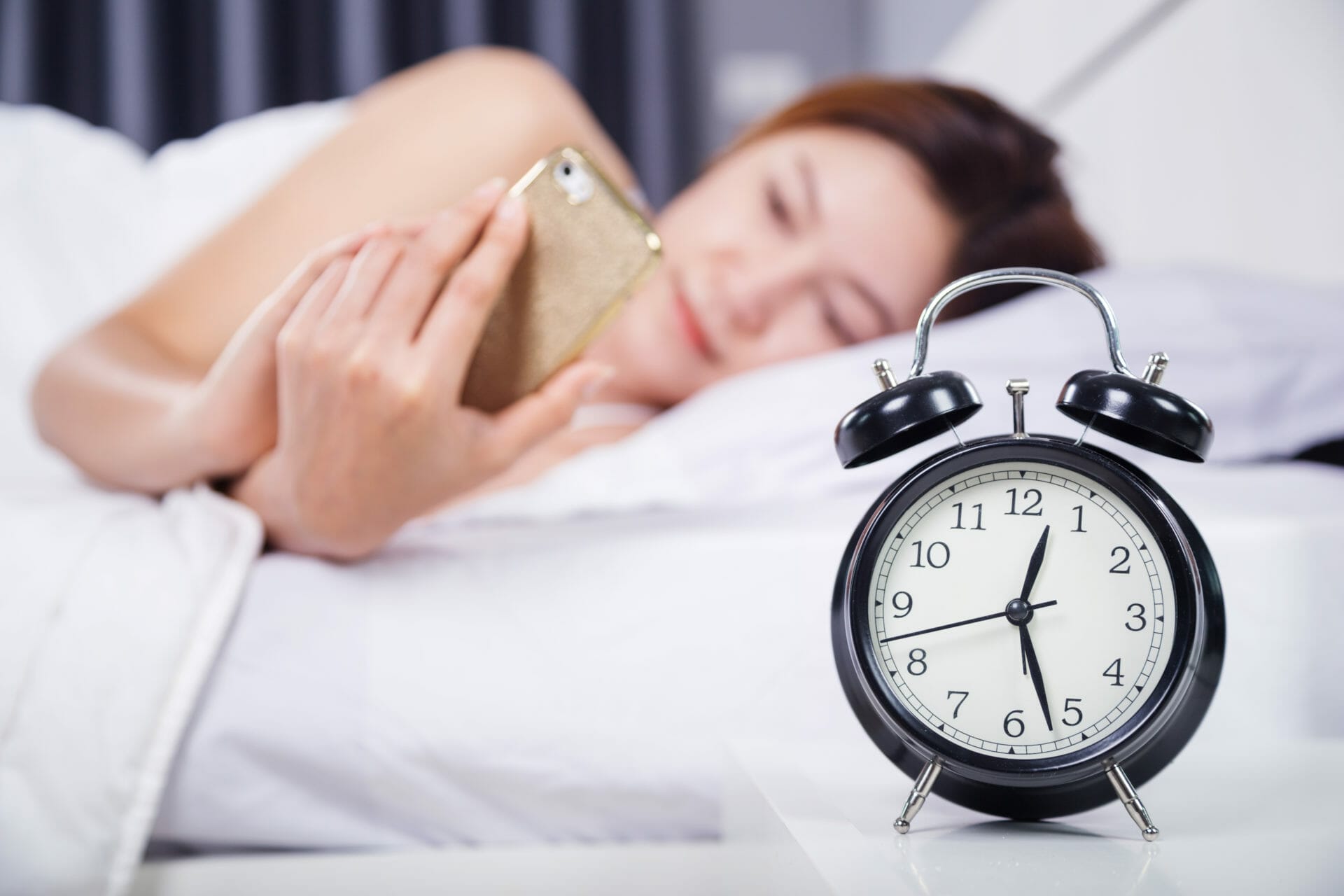
Every cell in the body follows a 24-hour rhythm that includes your sleep and wake cycles.
That’s why I recommend maintaining a consistent sleep and wake time.
A predictable sleep-wake cycle — when you fall asleep, when you wake up — allows for the brain and body to better control daily fluctuations in energy metabolism, hormone release, body temperature, and so on.
From an evolutionary perspective, our brains and bodies take cues from the sun, shifting with the seasons as sunlight exposure varies from month to month.
Because we now have so much control over our immediate environment, we throw our brains and bodies out of rhythm by falsely convincing them that daytime is night and nighttime is day. All it takes is the flick of a light switch, sitting in front of a computer monitor or phone screen, or a late-night refrigerator run.
Speak with anyone who does shift work about the nature of their job, and they’ll often tell you that the most difficult aspect is creating a healthy, predictable sleep-wake cycle — a rhythm — that runs counter to the natural rhythms of the sun.
The bottom line is that the more consistent your sleep cycle is, the more consistently your body releases sleep-inducing hormones that make you feel tired and help you fall asleep quicker.
If that sleep cycle and chemical processes in the brain is disrupted, you might have a hard time falling asleep.
2. Caffeine, Alcohol and Other Substances

I usually have two cups of coffee between 5:30 and 10:00 A.M. — well before bedtime. This ensures that I have a well-charged, caffeinated workday without it interfering with my evening relaxation and sleep. Just like evening exercise may impair sleep, so may evening caffeine (or even late-afternoon caffeine).
Alcohol, on the other hand, acts as a sedative. That means consuming alcohol can make you fall asleep quicker, which is why some people have a drink to wind down.
The problem with alcohol is that it disrupts the restorative phases of sleep, including deep and REM sleep.
In other words, while alcohol actually helps people fall asleep, the intoxicating substance may actually decrease sleep quality overnight.
That’s why I recommend avoiding alcohol as a sleep aid.
It’s worth nothing that there are high-quality alcohol alternatives — made from a type of real alcohol — that taste great, give you a buzz, and can actually improve your sleep and recovery. My favorite is Hard Ketones.
Other mind-altering substances, such as other stimulants (e.g., stim-heavy pre-workout supplements, Adderall, etc.) and nicotine, may also negatively impact sleep quality, resulting in a “wired” evening mental state — even despite a spent body.
I used to take pre-workout supplements containing caffeine before working out in the afternoon. But I had to stop because the caffeine impacted my ability to fall asleep at my regular bedtime. As a result, I switched to a pre-workout that doesn’t contain caffeine.
3. Blue Light Exposure
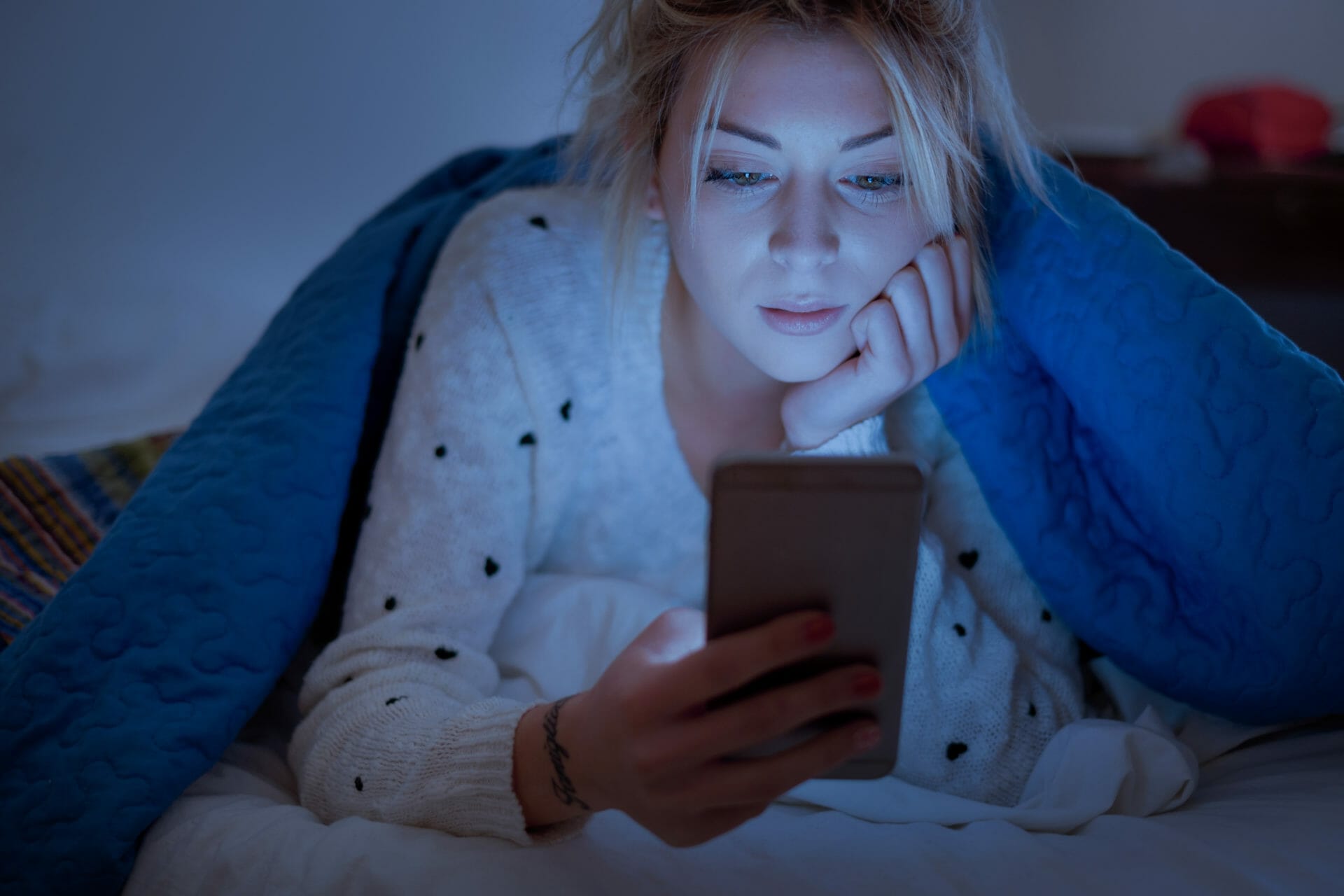
Here’s a common villain — one that’s increasingly everywhere in our lives: blue light wavelengths. Emitted from our TVs, computer monitors and smart phones, blue light impacts the release of melatonin, the sleep hormone. This is both good and bad.
The good: Daytime blue light, delivered by the sun, keeps us awake and alert throughout the workday and on the highway, stopping us from falling asleep at our desk or behind the wheel.
The bad: Evening blue light, emitted from electronics, also keeps us awake. Even after falling asleep, certain cognitive processes fail to shut off completely.
The need to check our phones while in bed is compulsive, and I believe it makes it both psychologically and neurochemically difficult to fully fall asleep.
While our bodies are still biologically primed for natural sunlight and natural sundown, we live in a world of increasing blue light exposure.
More and more, I’m seeing phones and programs that reduce blue light emittance at scheduled times, allowing the user to reduce blue exposure (for example) two hours prior to their usual bedtime.
That’s a great idea, especially if the nature of your work requires you to stare at monitors all day.
As a result, I recommend reducing your exposure to blue light starting at a few hours before bedtime. One of the methods to accomplish that is wearing blue-light-blocking glasses, such as the ones made by BonCharge that I wear every day after sunset.
4. Intensive Exercise Before Bedtime
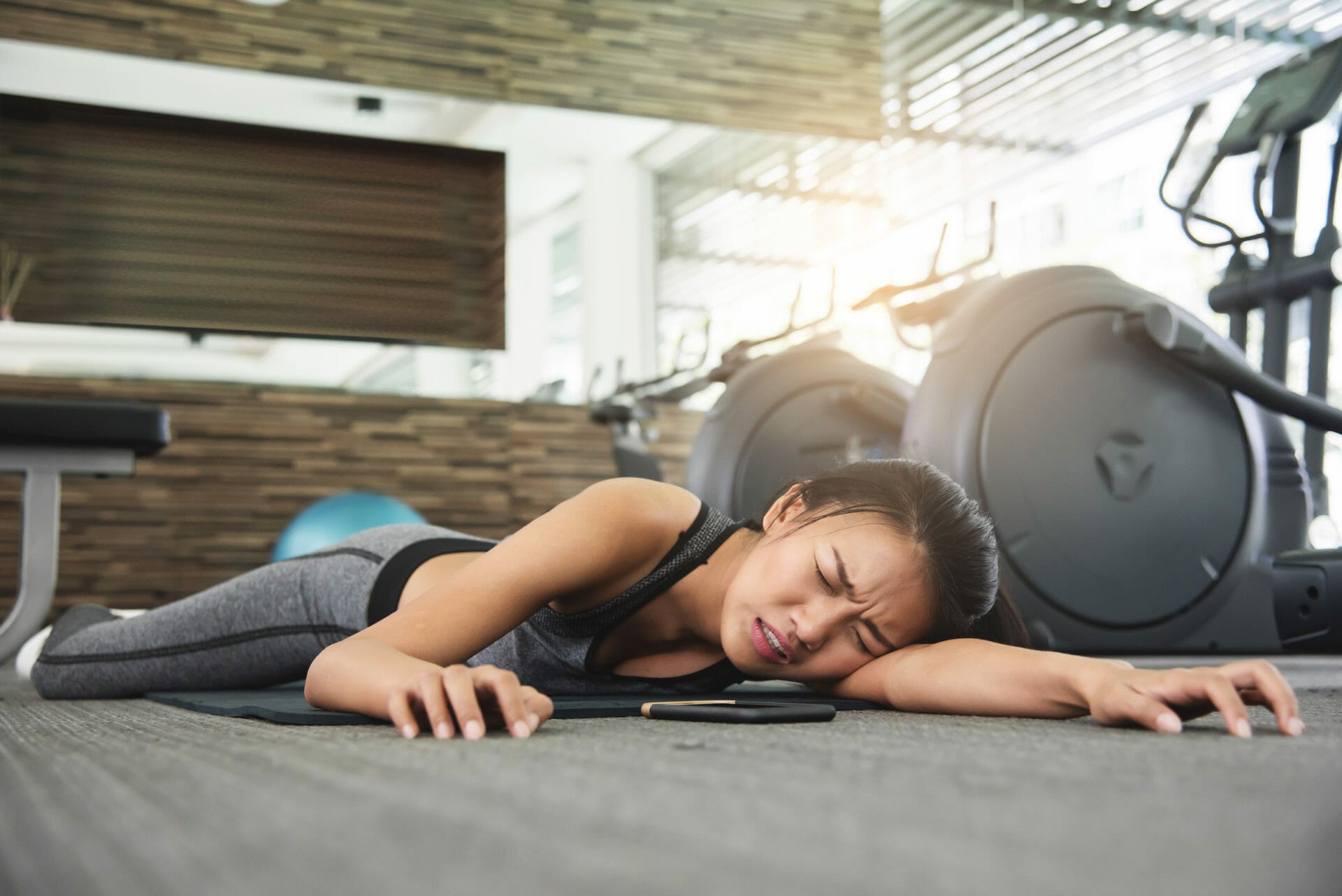
Regular physical activity has numerous health benefits, which is why I recommend working out for at least 30 minutes every day.
However, I’ve personally experienced that a strenuous workout right before bedtime can negatively impact my ability to fall and stay asleep.
I do CrossFit, and after competing in an incredibly exhausting CrossFit Open workout in 2018, neither my wife nor I could fall asleep.
That’s a phenomenon many others have observed and written about. As a result, I recommend only light to medium workouts in the late afternoon.
5. Ignoring the Body’s Cues
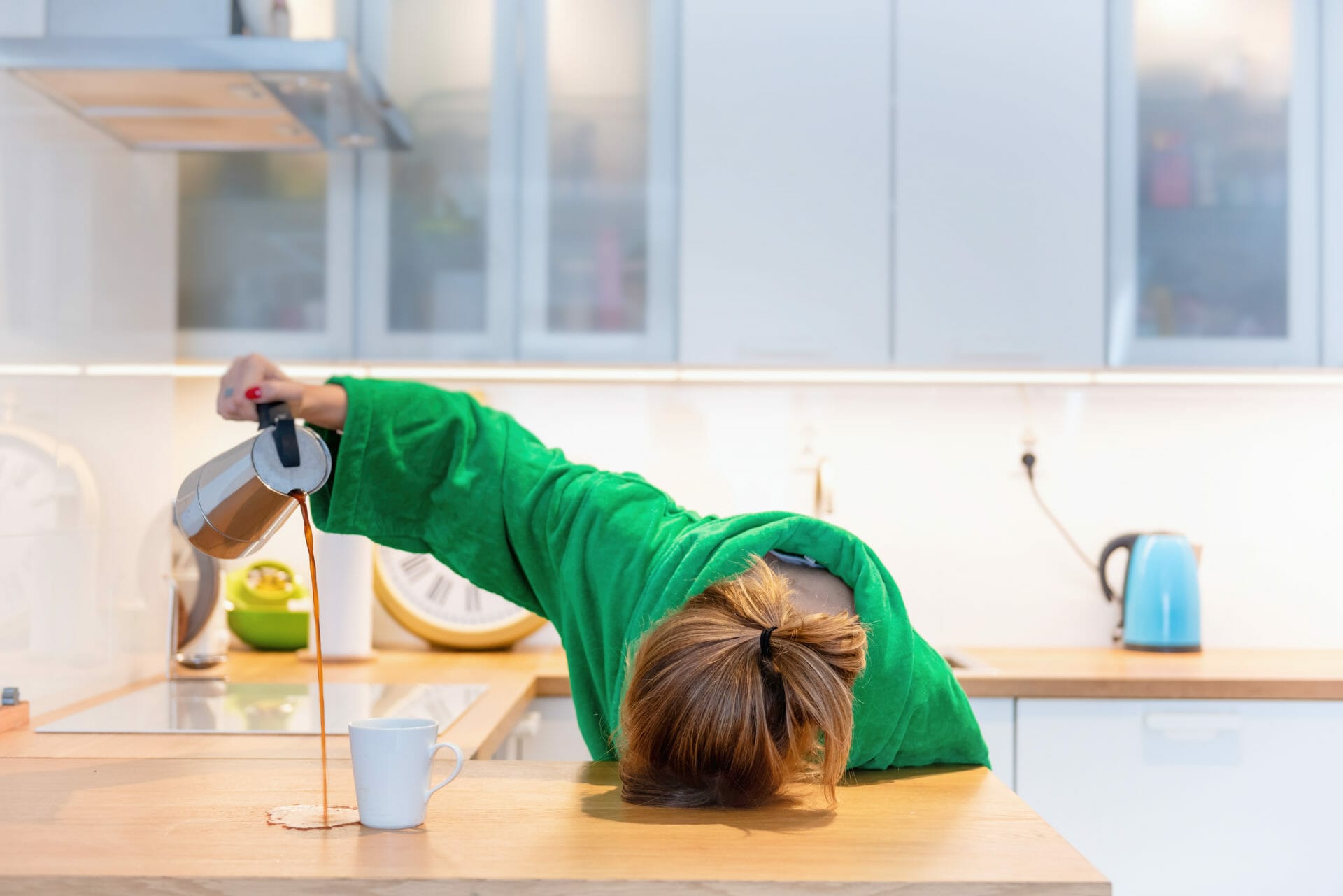
I’m sure you’ve experienced this before: you’re at a party and at 9 P.M. sleepiness sets in. But the party just started and you have no desire to call it a night.
An hour later, you suddenly get “a second wind” and feel energetic and ready to go all night. What happened?
You felt sleepy at 9 P.M. because the pineal gland in the center of your brain released melatonin and other sleep-inducing neurotransmitters to cue the body that it was time to sleep.
As you pushed through it, your brain noticed that something was off and so it released chemicals, such as cortisol (aka the stress hormone) to deal with whatever “emergency” was keeping you up.
While such a response has benefited humans throughout evolution, it wasn’t intended to keep the party alive.
When this happens, it’ll likely take you much longer to unwind and fall asleep. That’s why I recommend going to bed when your body tells you to.
6. Stress and Anxiety
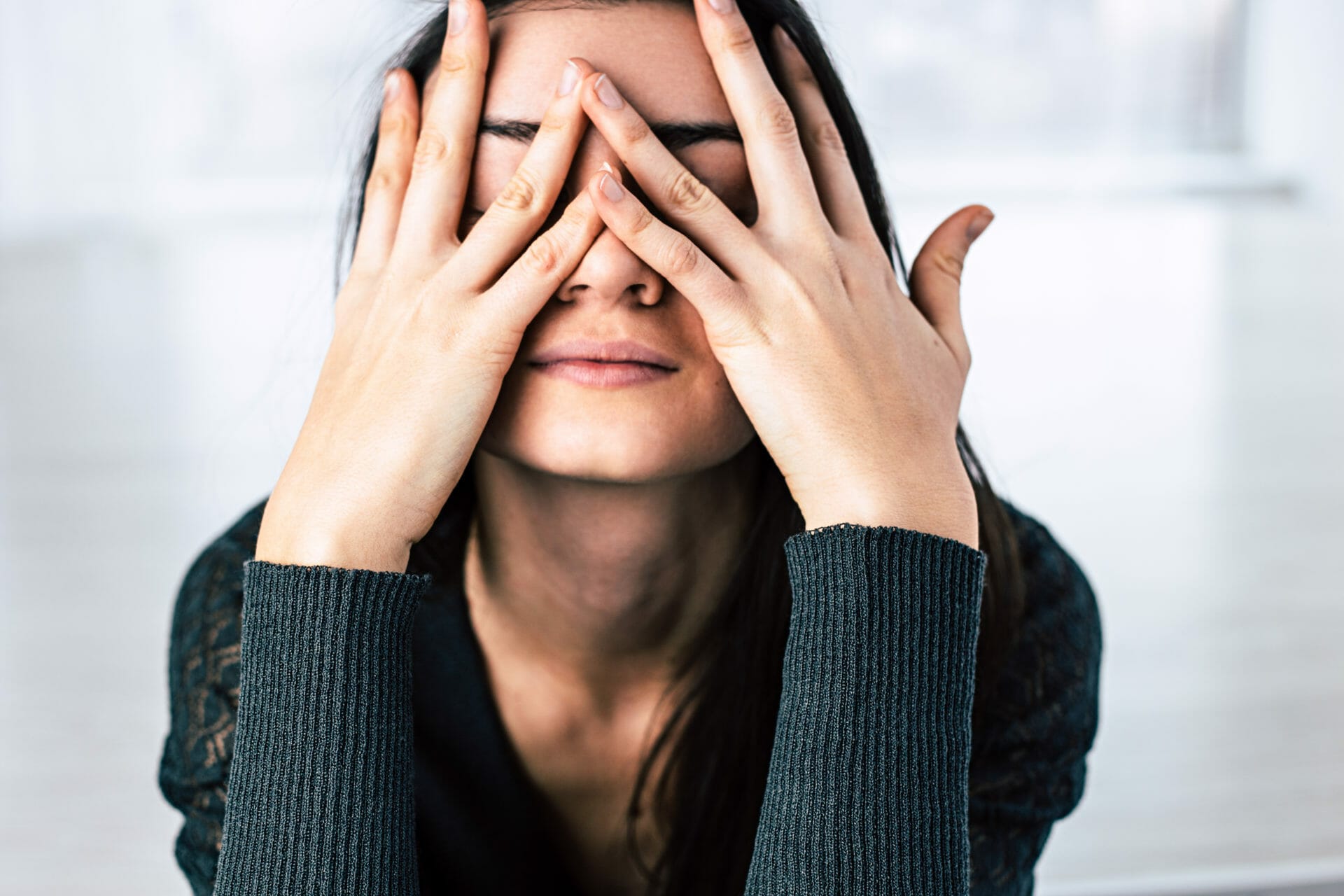
Much like ignoring the body’s cues to go to bed, stress and anxiety can lead to higher-than-normal cortisol levels, thus preventing you from falling asleep.
The funny thing is that both positive and negative stress can keep your head spinning.
I’ve experienced that on more than one occasion: I couldn’t stop thinking about positive or negative events that occurred during the day, and consequently had trouble going to sleep.
When that happens, I use one of two techniques that help me fall asleep quicker — see below.
7. Afternoon Naps
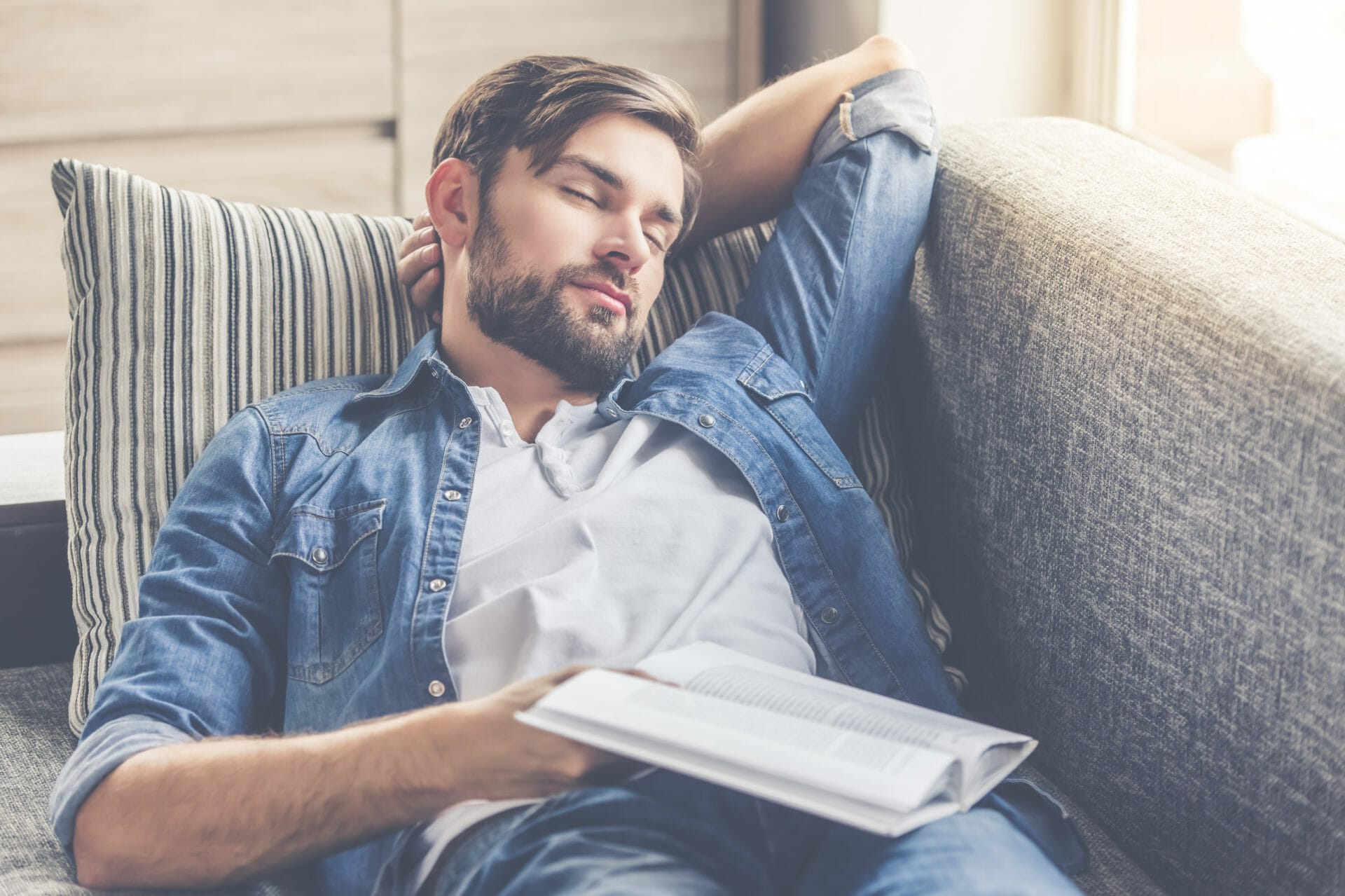
While a power nap is a great way to get some extra sleep, if necessary, it’s no replacement for a good night’s sleep.
More importantly, I recommend avoiding any naps after 3 P.M. because they might negatively impact your ability to fall asleep at bedtime.
I’m not good at napping (unless I’m sick). Maybe that’s because I usually fulfill my sleep needs at night, or because I’m just not used to sleeping during the day.
If you’re a good napper, I recommend drinking an espresso right before your nap and setting your alarm clock for 30 minutes. By the time the alarm goes off, the caffeine in the espresso will have kicked in and you’ll feel like a million bucks.
Regardless of how you structure your nap routine, I recommend napping in 30 or 90-minute intervals, mimicking your normal sleep cycle. That prevents you from waking up while you’re in slow-wave or REM sleep and feeling groggy.
How to Get Into a (Circadian) Rhythm
Johnny Cash sang, “get rhythm, when you get the blues.” This is great advice.
When you’re feeling off, odds are that you are off. The best way to get back “on” — to get into a healthy circadian rhythm — is to consistently schedule when you:
- Wake up in the morning, and
- Go to bed at night
I wrote in detail about the social implications of having a strict bedtime in this article, so I won’t repeat everything I’ve said already.
However, it’s important to understand that if you don’t sleep well, nothing else matters. In other words, you can’t out-exercise or out-eat bad sleeping habits.
Protect your sleep to the best of your ability and pay attention to how a consistent sleep and wake cycle positively influences every aspect of your life.
You don’t have to be a sleep fanatic. Instead, think of it as goals and guidelines — a schedule to follow insomuch as it keeps your life in order and “in rhythm,” yet one that still allows for flexibility and novelty.
The Role of Neurotransmitters in the Sleep-Wake Cycle
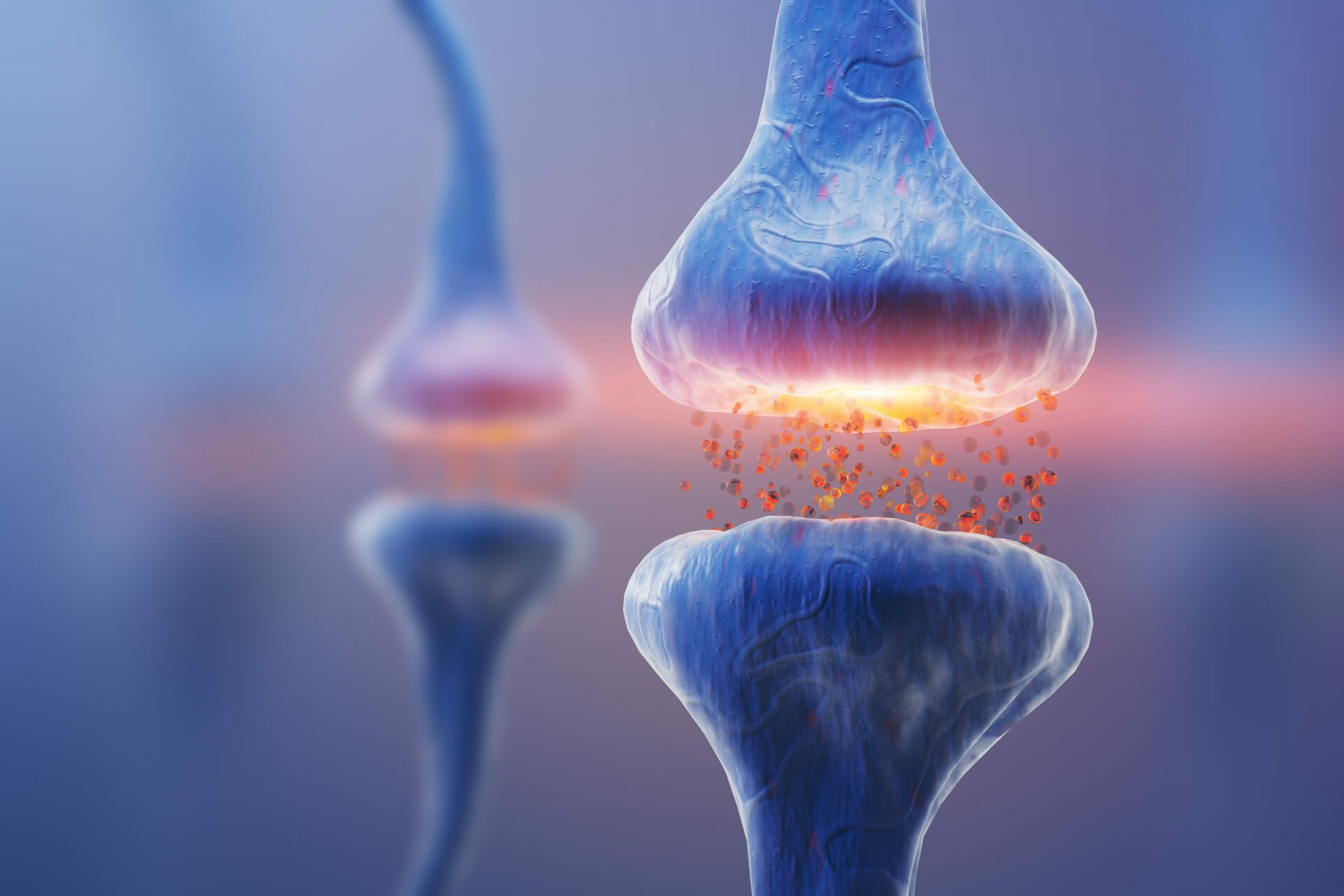
A key aspect of a healthy circadian clock is when the body releases “excitatory” neurotransmitters (chemicals associated with alertness) and “inhibitory” neurotransmitters (chemicals associated with calmness), roughly speaking.
When we wake up, we experience a sharp spike in the stress hormone cortisol. This ramps up the system, triggering the release of energy to be used throughout the day.
Conversely, prior to sleeping, we see increases in GABA (a chemical associated with relaxation and sleep) and melatonin, the famous “time to sleep” neurotransmitter we’ve come to view as synonymous with falling asleep.
Again, under conditions of exceptional stress, the release of the stress hormone cortisol overextends its stay beyond that initial sharp spike in the morning, resulting in too much excitatory neurotransmitter activity throughout the day.
This results in impaired nighttime relaxation and sleep, which in turn inhibits the next-morning spike in morning cortisol required for an effective “get up and go” internal wake-up call.
How to Fall Asleep Quicker
If you have chronic issues with falling asleep, you need to assess your sleep routine and make appropriate changes, such as the ones I recommended in this article.
In a nutshell, that means maintaining a consistent sleep habit and adopting a lifestyle that increases your chances of getting quality sleep.
I like to think that my lifestyle is conducive to sleeping well, but even I find myself sometimes in the situation where I can’t stop thinking. If that happens, I take one or more of the following steps:
- Focus on breathing
- Take a hot shower
- Have sex
- Supplement with melatonin
Focus on (Nasal) Breathing
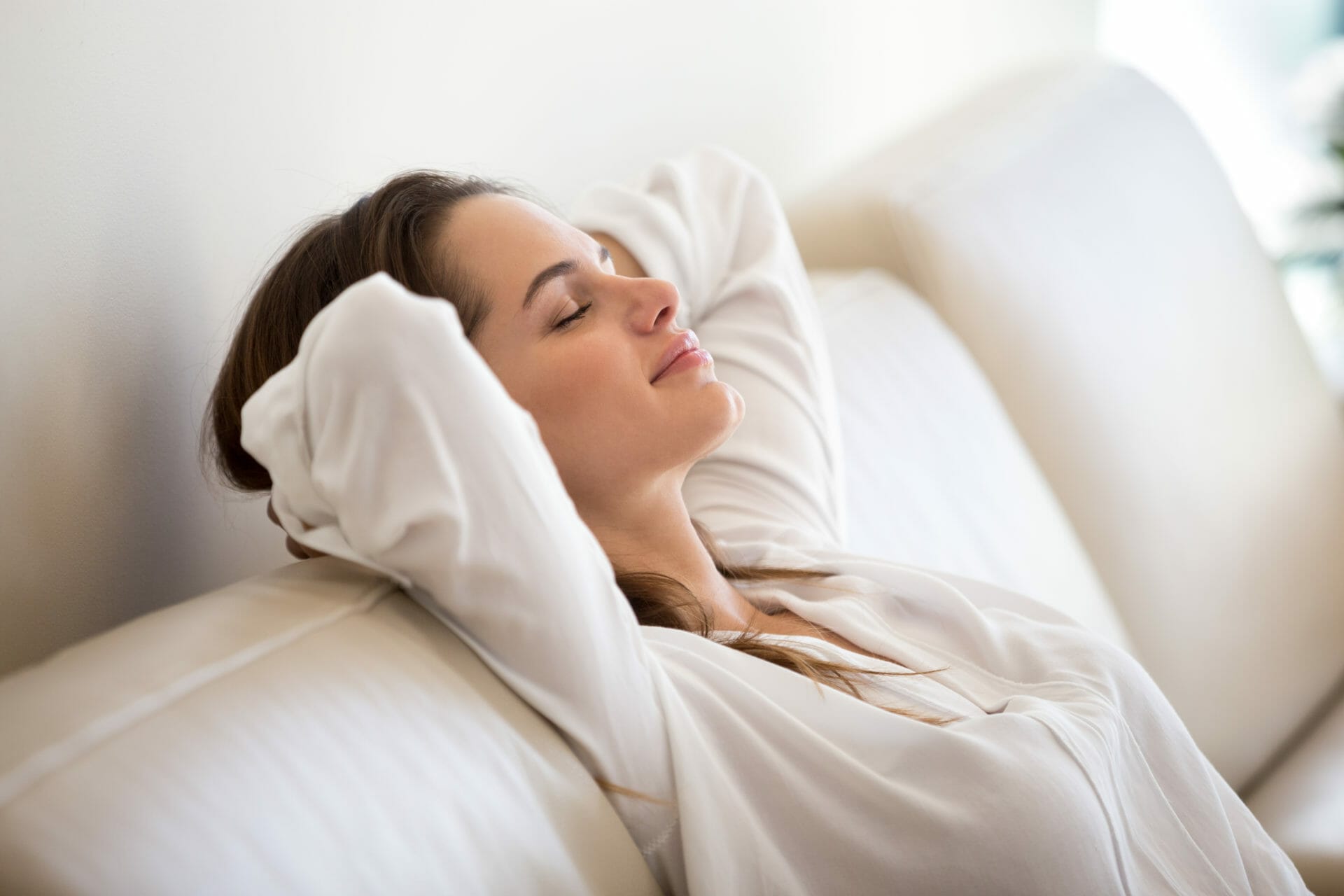
While we all breathe, most of us never pay attention to how we do it. That’s a shame, because focusing on your breathing has numerous health benefits that go beyond sleep.
Every night when I lie in bed, I’m mindful of how I breathe. More importantly, I count my breaths and I follow a certain cadence. I breathe in through my nose, slowly counting to four; I hold it for one second, and then breathe out on a count of five.
Nose breathing increases circulating blood oxygen and carbon dioxide levels, reduces stress, reduces blood pressure and lowers your heart rate. Plus, counting your breaths prevents the brain from thinking about something else.
I do this every night and fall asleep within a few minutes.
Take a Hot Shower
Taking a hot shower causes increased blood flow to the extremities, which also reduces your body’s core temperature.
That reduction in core temperature is an important and natural prerequisite for falling asleep.
Have Sex
Having sex — and in particular, an orgasm — triggers the release of several hormones, including oxytocin and vasopressin.
Those two hormones are often accompanied by melatonin, which helps you fall asleep.
Supplement With Melatonin
If nothing else helps, I take a high-quality melatonin supplement.
Melatonin has an incredibly short half-life, which means you can feel the effects quickly and it won’t make you groggy in the morning.
I also use melatonin when I suffer from jet lag, and to help my body adjust to a new timezone — and thus a new sleep/wake cycle — quicker.
Update: While I’m a fan of using low dosages of melatonin, it can be habit-forming and consistent use can prevent your body from producing its own melatonin. So I’ve backed off on using it, and am currently experimenting with a melatonin-free supplement from BiOptimizers — which has been working really well to help me get sleepy.
When to Consult a Sleep Specialist
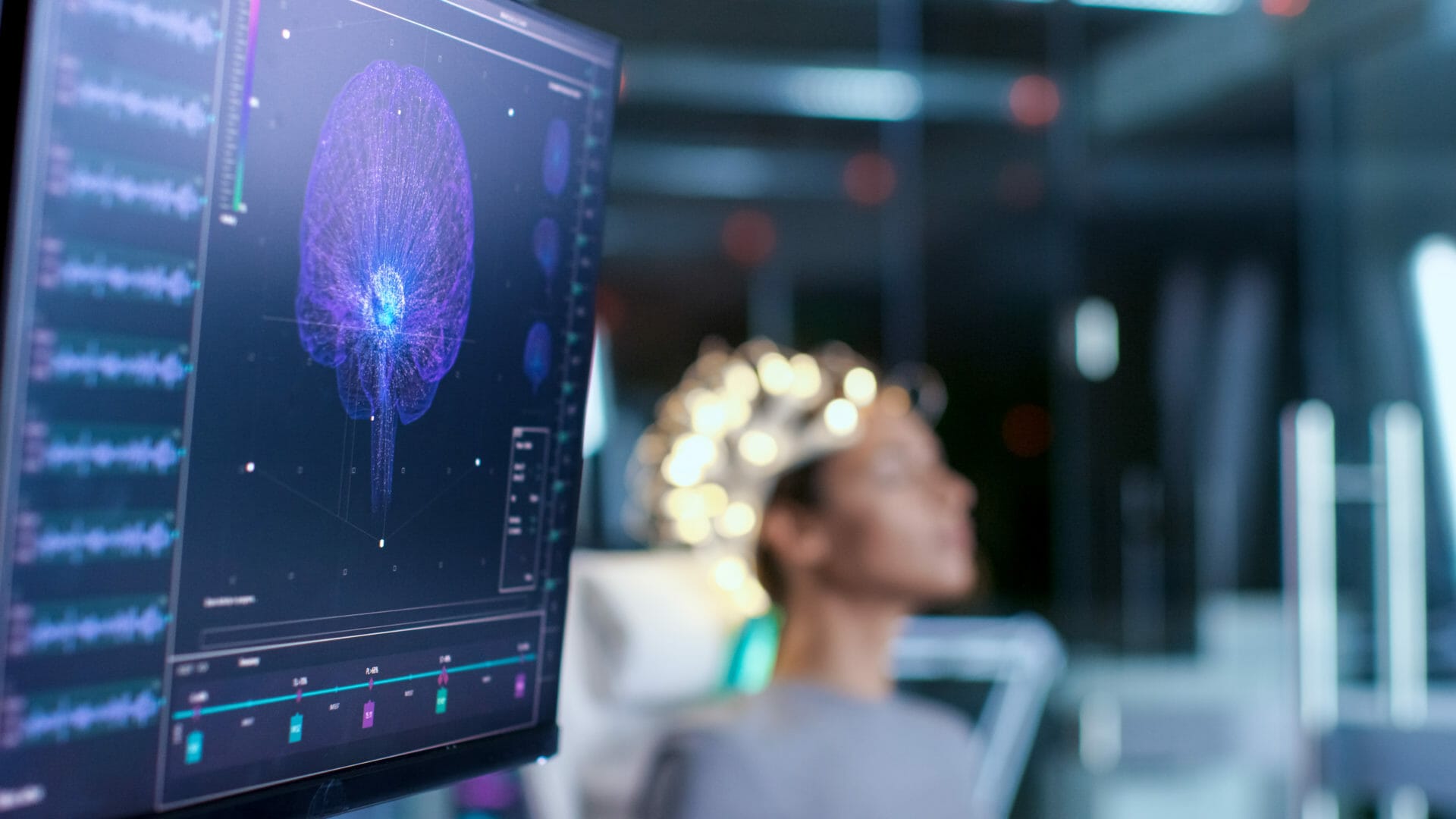
Chronic stress disrupts a healthy sleep-wake cycle by leveling the sharp spike in morning cortisol to a slow, steady drip throughout the day.
This places the brain and body in a constant state of stress that, if left unaddressed, may lead to more serious health issues, such as adrenal failure and chronic fatigue syndrome (CFS).
Other sleep-wake issues, especially intrinsic issues linked to genetics, may require special attention from a physician. It isn’t always the case that poor sleep may be remedied by behavioral and lifestyle changes.
Sleep disorders like severe or chronic insomnia and narcolepsy warrant consultation with a sleep specialist.
If sleep problems persist despite the use of a sleep aid and attempts to build a healthy exercise and sleep schedule, odds are the problem has deeper psychological and/or physiological roots that may not be rectified through over-the-counter methods.
Frequently Asked Questions
There is no general guideline on how many hours of sleep you need, but the National Sleep Foundation says that most people seem to do well with between seven and eight hours.
While the quality of sleep is arguably more important than the length, you likely won’t stay in the restorative stages of sleep long enough if you only sleep for six hours.
Insomnia is a condition that is characterized by having difficulty falling or staying asleep.
If you suffer from severe insomnia, I recommend consulting with a specialist to discuss all the areas of your life that might cause it, including stress, diet, sleep habits, any medication you take and more.
Sleep apnea is a condition that causes you to intermittently stop breathing while you’re sleeping. A common treatment for sleep apnea is using a continuous positive airway pressure (CPAP) device.
Good sleep means getting sufficient sleep and, in particular, enough slow-wave and REM sleep. As a general guideline, you want to spend about 40% of your sleep time in those restorative phases of sleep.
I’m glad you asked! I just published an article about the best sleep trackers on the market. Check it out!
Conclusion
Sleep is a skill you have to acquire, much like eating healthy or riding a bike.
The good news is that once you’ve mastered that skill, you’ve got a solid foundation for improving your health and well-being.
I hope this article has helped you figure out what’s keeping you awake at night and gave you tips and tricks for modifying your lifestyle and attaining that perfect night’s sleep.
If you’ve had success, or even if you haven’t, let me know by leaving a comment below.
Good night!
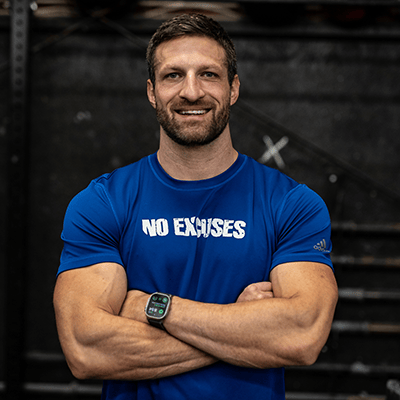
Michael is a healthy living enthusiast and CrossFit athlete whose goal is to help people achieve optimal health by bridging the gap between ancestral living and the demands of modern society.
Medical Disclaimer
The information shared on this blog is for educational purposes only, is not a substitute for the advice of medical doctors or registered dieticians (which we are not) and should not be used to prevent, diagnose, or treat any condition. Consult with a physician before starting a fitness regimen, adding supplements to your diet, or making other changes that may affect your medications, treatment plan or overall health. MichaelKummer.com and its owner MK Media Group, LLC are not liable for how you use and implement the information shared here, which is based on the opinions of the authors formed after engaging in personal use and research. We recommend products, services, or programs and are sometimes compensated for doing so as affiliates. Please read our Terms and Conditions for further information, including our privacy policy.
Sorry, but these articles are so elementary, every one knows all the above without reading.
Canada is lacking good doctors who are treating real sleeping disorders, not the baby instructions. We are left to make our own diagnosis as doctors over the phone are no doctors and most of them don’t even know what to do with the patient who did not sleep for over 3 months.
If you already know everything there is to know about sleep, what brought you to my blog?